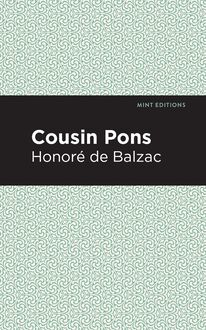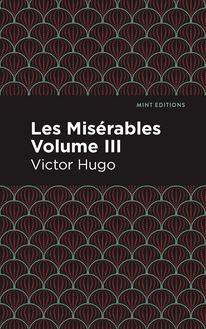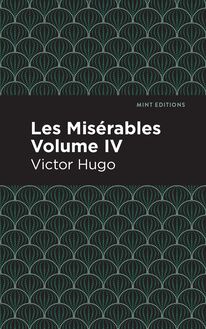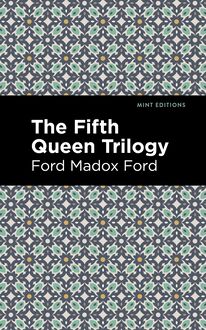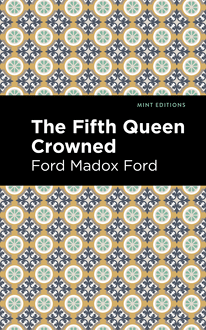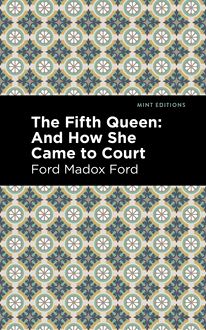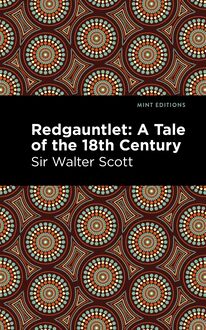-
 Univers
Univers
-
 Ebooks
Ebooks
-
 Livres audio
Livres audio
-
 Presse
Presse
-
 Podcasts
Podcasts
-
 BD
BD
-
 Documents
Documents
-
- Cours
- Révisions
- Ressources pédagogiques
- Sciences de l’éducation
- Manuels scolaires
- Langues
- Travaux de classe
- Annales de BEP
- Etudes supérieures
- Maternelle et primaire
- Fiches de lecture
- Orientation scolaire
- Méthodologie
- Corrigés de devoir
- Annales d’examens et concours
- Annales du bac
- Annales du brevet
- Rapports de stage
La lecture à portée de main
Vous pourrez modifier la taille du texte de cet ouvrage
Découvre YouScribe en t'inscrivant gratuitement
Je m'inscrisDécouvre YouScribe en t'inscrivant gratuitement
Je m'inscrisEn savoir plus
Vous pourrez modifier la taille du texte de cet ouvrage
En savoir plus

Description
Quentin Durward, an archer and mercenary, gains the favor of Louis XI of France and the love of the beautiful Burgundian heiress, Isabelle de Croye. This is a captivating tale full of action, adventure and unexpected challenge. A poor Scotsman named Quentin Durward travels to France to find military work. He joins the royal party of King Louis XI, who is at odds with Charles the Bold, Duke of Burgundy. When the king is attacked by a boar, Quentin leaps into action and saves his life. This leads to a fateful assignment that will change his life forever. Quentin is charged with protecting Isabelle de Croye, an heiress being targeted by Charles. While together, Quentin and Isabelle unexpectedly fall in love, upsetting the duke’s treacherous plans.Quentin Durward is a historical novel driven by larger-than-life characters. Each one plays a pivotal role in the layered narrative. Like many of Scott’s works, Quentin Durward balances action, morality and an unforgettable story. With an eye-catching new cover, and professionally typeset manuscript, this edition of Quentin Durward is both modern and readable.
Sujets
Informations
| Publié par | Mint Editions |
| Date de parution | 14 mai 2021 |
| Nombre de lectures | 0 |
| EAN13 | 9781513285474 |
| Langue | English |
| Poids de l'ouvrage | 2 Mo |
Informations légales : prix de location à la page 0,0500€. Cette information est donnée uniquement à titre indicatif conformément à la législation en vigueur.
Extrait
Quentin Durward
Sir Walter Scott
Quentin Durward was first published in 1823.
This edition published by Mint Editions 2021.
ISBN 9781513280455 | E-ISBN 9781513285474
Published by Mint Editions ®
minteditionbooks .com
Publishing Director: Jennifer Newens
Design & Production: Rachel Lopez Metzger
Project Manager: Micaela Clark
Typesetting: Westchester Publishing Services
C ONTENTS I. T HE C ONTRAST II. T HE W ANDERER III. T HE C ASTLE IV. T HE D EJEUNER V. T HE M AN AT A RMS VI. T HE B OHEMIANS VII. T HE E NROLMENT VIII. T HE E NVOY IX. T HE B OAR H UNT X. T HE S ENTINEL XI. T HE H ALL OF R OLAND XII. T HE P OLITICIAN XIII. T HE J OURNEY XIV. T HE J OURNEY XV. T HE G UIDE XVI. T HE V AGRANT XVII. T HE E SPIED S PY XVIII. P ALMISTRY XIX. T HE C ITY XX. T HE B ILLET XXI. T HE S ACK XXII. T HE R EVELLERS XXIII. T HE F LIGHT XXIV. T HE S URRENDER XXV. T HE U NBIDDEN G UEST XXVI. T HE I NTERVIEW XXVII. T HE E XPLOSION XXVIII. U NCERTAINTY XXIX. R ECRIMINATION XXX. U NCERTAINTY XXXI. T HE I NTERVIEW XXXII. T HE I NVESTIGATION XXXIII. T HE H ERALD XXXIV. T HE E XECUTION XXXV. A P RIZE FOR H ONOUR XXXVI. T HE S ALLY XXXVII. T HE S ALLY
I
T HE C ONTRAST
Look here upon this picture, and on this,
The counterfeit presentment of two brothers.
— H AMLET
The latter part of the fifteenth century prepared a train of future events that ended by raising France to that state of formidable power which has ever since been from time to time the principal object of jealousy to the other European nations. Before that period she had to struggle for her very existence with the English already possessed of her fairest provinces while the utmost exertions of her King, and the gallantry of her people, could scarcely protect the remainder from a foreign yoke. Nor was this her sole danger. The princes who possessed the grand fiefs of the crown, and, in particular, the Dukes of Burgundy and Bretagne, had come to wear their feudal bonds so lightly that they had no scruple in lifting the standard against their liege and sovereign lord, the King of France, on the slightest pretence. When at peace, they reigned as absolute princes in their own provinces; and the House of Burgundy, possessed of the district so called, together with the fairest and richest part of Flanders, was itself so wealthy, and so powerful, as to yield nothing to the crown, either in splendour or in strength.
In imitation of the grand feudatories, each inferior vassal of the crown assumed as much independence as his distance from the sovereign power, the extent of his fief, or the strength of his chateau enabled him to maintain; and these petty tyrants, no longer amenable to the exercise of the law, perpetrated with impunity the wildest excesses of fantastic oppression and cruelty. In Auvergne alone, a report was made of more than three hundred of these independent nobles, to whom incest, murder, and rapine were the most ordinary and familiar actions.
Besides these evils, another, springing out of the long continued wars betwixt the French and English, added no small misery to this distracted kingdom. Numerous bodies of soldiers, collected into bands, under officers chosen by themselves, from among the bravest and most successful adventurers, had been formed in various parts of France out of the refuse of all other countries. These hireling combatants sold their swords for a time to the best bidder; and, when such service was not to be had, they made war on their own account, seizing castles and towers, which they used as the places of their retreat, making prisoners, and ransoming them, exacting tribute from the open villages and the country around them—and acquiring, by every species of rapine, the appropriate epithets of Tondeurs and Ecorcheurs, that is, Clippers and Flayers.
In the midst of the horrors and miseries arising from so distracted a state of public affairs, reckless and profuse expense distinguished the courts of the lesser nobles, as well as of the superior princes; and their dependents, in imitation, expended in rude but magnificent display the wealth which they extorted from the people. A tone of romantic and chivalrous gallantry (which, however, was often disgraced by unbounded license) characterized the intercourse between the sexes; and the language of knight errantry was yet used, and its observances followed, though the pure spirit of honourable love and benevolent enterprise which it inculcates had ceased to qualify and atone for its extravagances. The jousts and tournaments, the entertainments and revels, which each petty court displayed, invited to France every wandering adventurer; and it was seldom that, when arrived there, he failed to employ his rash courage, and headlong spirit of enterprise, in actions for which his happier native country afforded no free stage.
At this period, and as if to save this fair realm from the various woes with which it was menaced, the tottering throne was ascended by Louis XI, whose character, evil as it was in itself, met, combated, and in a great degree neutralized the mischiefs of the time—as poisons of opposing qualities are said, in ancient books of medicine, to have the power of counteracting each other.
Brave enough for every useful and political purpose, Louis had not a spark of that romantic valour, or of the pride generally associated with it, which fought on for the point of honour, when the point of utility had been long gained. Calm, crafty, and profoundly attentive to his own interest, he made every sacrifice, both of pride and passion, which could interfere with it. He was careful in disguising his real sentiments and purposes from all who approached him, and frequently used the expressions, “that the king knew not how to reign, who knew not how to dissemble; and that, for himself, if he thought his very cap knew his secrets, he would throw it into the fire.” No man of his own, or of any other time, better understood how to avail himself of the frailties of others, and when to avoid giving any advantage by the untimely indulgence of his own.
He was by nature vindictive and cruel, even to the extent of finding pleasure in the frequent executions which he commanded. But, as no touch of mercy ever induced him to spare, when he could with safety condemn, so no sentiment of vengeance ever stimulated him to a premature violence. He seldom sprang on his prey till it was fairly within his grasp, and till all hope of rescue was vain; and his movements were so studiously disguised, that his success was generally what first announced to the world the object he had been manoeuvring to attain.
In like manner, the avarice of Louis gave way to apparent profusion, when it was necessary to bribe the favourite or minister of a rival prince for averting any impending attack, or to break up any alliance confederated against him. He was fond of license and pleasure; but neither beauty nor the chase, though both were ruling passions, ever withdrew him from the most regular attendance to public business and the affairs of his kingdom. His knowledge of mankind was profound, and he had sought it in the private walks of life, in which he often personally mingled; and, though naturally proud and haughty, he hesitated not, with an inattention to the arbitrary divisions of society which was then thought something portentously unnatural, to raise from the lowest rank men whom he employed on the most important duties, and knew so well how to choose them, that he was rarely disappointed in their qualities. Yet there were contradictions in the character of this artful and able monarch; for human nature is rarely uniform. Himself the most false and insincere of mankind, some of the greatest errors of his life arose from too rash a confidence in the honour and integrity of others. When these errors took place, they seem to have arisen from an over refined system of policy, which induced Louis to assume the appearance of undoubting confidence in those whom it was his object to overreach; for, in his general conduct, he was as jealous and suspicious as any tyrant who ever breathed.
Two other points may be noticed to complete the sketch of this formidable character, by which he rose among the rude, chivalrous sovereigns of the period to the rank of a keeper among wild beasts, who, by superior wisdom and policy, by distribution of food, and some discipline by blows, comes finally to predominate over those who, if unsubjected by his arts, would by main strength have torn him to pieces.
The first of these attributes was Louis’s excessive superstition, a plague with which Heaven often afflicts those who refuse to listen to the dictates of religion. The remorse arising from his evil actions Louis never endeavoured to appease by any relaxation in his Machiavellian stratagems, 1 but laboured in vain to soothe and silence that painful feeling by superstitious observances, severe penance, and profuse gifts to the ecclesiastics. The second property, with which the first is sometimes found strangely united, was a disposition to low pleasures and obscure debauchery. The wisest, or at least the most crafty sovereign of his time, he was fond of low life, and, being himself a man of wit, enjoyed the jests and repartees of social conversation more than could have been expected from other points of his character. He even mingled in the comic adventures of obscure intrigue, with a freedom little consistent with the habitual and guarded jealousy of his character, and he was so fond of this species of humble gallantry, that he caused a number of its gay and licentious anecdotes to be enrolled in a collection well known to book collectors, in whose eyes (and the work is unfit for any other) the right edition is very precious. 2
By means of this monarch’s powerful and prudent, though most unamiable character, it pleased Heaven, who works by the tempest as well as by the soft, small rain, to restore to the great
-
 Univers
Univers
-
 Ebooks
Ebooks
-
 Livres audio
Livres audio
-
 Presse
Presse
-
 Podcasts
Podcasts
-
 BD
BD
-
 Documents
Documents
-
Jeunesse
-
Littérature
-
Ressources professionnelles
-
Santé et bien-être
-
Savoirs
-
Education
-
Loisirs et hobbies
-
Art, musique et cinéma
-
Actualité et débat de société
-
Jeunesse
-
Littérature
-
Ressources professionnelles
-
Santé et bien-être
-
Savoirs
-
Education
-
Loisirs et hobbies
-
Art, musique et cinéma
-
Actualité et débat de société
-
Actualités
-
Lifestyle
-
Presse jeunesse
-
Presse professionnelle
-
Pratique
-
Presse sportive
-
Presse internationale
-
Culture & Médias
-
Action et Aventures
-
Science-fiction et Fantasy
-
Société
-
Jeunesse
-
Littérature
-
Ressources professionnelles
-
Santé et bien-être
-
Savoirs
-
Education
-
Loisirs et hobbies
-
Art, musique et cinéma
-
Actualité et débat de société
- Cours
- Révisions
- Ressources pédagogiques
- Sciences de l’éducation
- Manuels scolaires
- Langues
- Travaux de classe
- Annales de BEP
- Etudes supérieures
- Maternelle et primaire
- Fiches de lecture
- Orientation scolaire
- Méthodologie
- Corrigés de devoir
- Annales d’examens et concours
- Annales du bac
- Annales du brevet
- Rapports de stage

